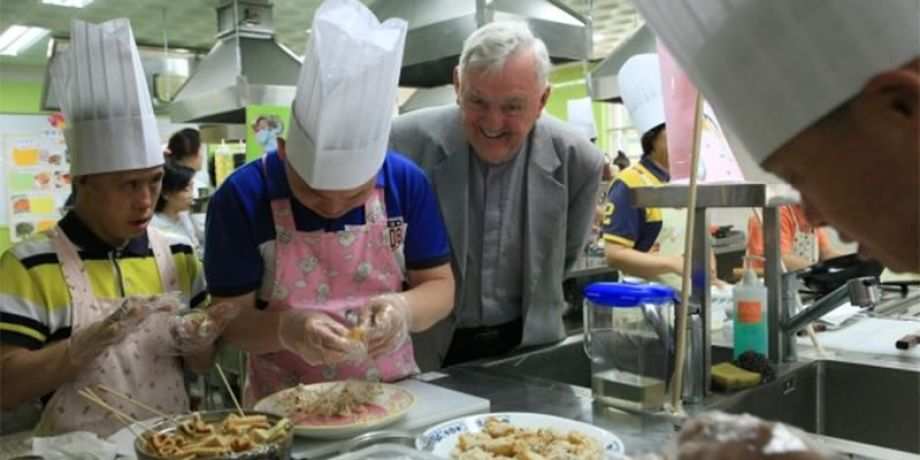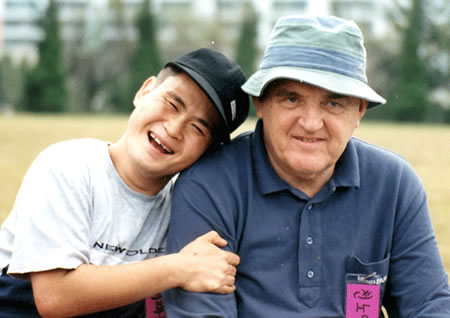
Columban Fr. Noel O’Neill writes about how Covid-19 restrictions impacted on those cared for in Emmaus homes in South Korea.
For the first 18 months of Covid-19 both South Korea and Hong Kong did such a good job in managing the spread of the virus that they were looked upon as success stories. But the number of cases shot up in both countries when they entered the second year of struggling with the pandemic. Prior to Presidential elections, the Korean government relaxed social distancing, prompting criticism that it was a political move to secure votes. The net result was the spread of a highly contagious Omicron variant.

The city office ordered the Emmaus centers for the intellectually disabled to shut because of the highly transmissible Omicron variant. That meant our disabled people had to be cared for in their family homes 24/7. It was very hard where you had both parents working. It meant one had to stay at home to care for their disabled child. On top of that our severely disabled people are easily disturbed. Being confined to the apartment all day is very frustrating and very challenging for the carers. One poor mother was so stressed out caring 24/7 for her 25-year-old severely disabled son that she made the terrible decision to end both their lives.
The spread of the Omicron variant was extremely challenging for the intellectually disabled themselves as they have no comprehension of the dangers of the virus. They cannot understand the need for social distancing, the need for wearing a mask, or the need for frequent washing of hands. Carers need to have special skills and techniques to help them become aware of all those demands.
Emmaus provides residential services for 60 people, spread over 15 group homes. In normal times during the evenings, they would be going to the bowling alley, visiting the health club, going to the karaoke hall, shopping at the local supermarket. But because of the upsurge of the virus, restrictions and caution forbade those activities.
However, thanks to our Columban benefactors, we were able to overcome those stormy times by having professional instructors run arts and crafts programs in our group homes. Our residents updated their photo albums and so relived the excitement and thrill they experienced when they rode the bus to the peak of the second highest mountain in Korea.
In the group home next door to me are four men with intellectual disabilities and none of whom can hear or speak. For between twenty and thirty years, they had suffered physical and sexual abuse while living in a notorious and infamous large institution, which was closed down by the government after the media exposed their hidden sins. It was a tonic for me to drop by during the pandemic and join with them as they played indoor mini-bowling or help them as they put flower seedlings into pots. Throughout the pandemic we insisted that our people living in group homes refrain from going to the parish church as they were so vulnerable. They watched the Sunday Mass on TV. There are four very fervent middle-aged women with Down’s Syndrome living in one of the Emmaus’ group homes. I am sure that Jesus smiled when He saw them go up to the front of the TV and put out their hands to receive the host as the priest was giving out Holy Communion. Perhaps it was the same kind of smile he gave the two Emmaus disciples who recognized Him in the breaking of bread.